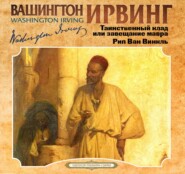По всем вопросам обращайтесь на: info@litportal.ru
(©) 2003-2024.
✖
Abbotsford and Newstead Abbey
Настройки чтения
Размер шрифта
Высота строк
Поля
Showed what in youth its glance had been;
Whose doom discording neighbors sought,
Content with equity unbought;
To him the venerable priest,
Our frequent and familiar guest,
Whose life and manners well could paint
Alike the student and the saint;
Alas! whose speech too oft I broke
With gambol rude and timeless joke;
For I was wayward, bold, and wild,
A self-willed imp, a grandame's child;
But half a plague, and half a jest,
Was still endured, beloved, carest."
It was, he said, during his residence at Smallholm crags that he first imbibed his passion for legendary tales, border traditions, and old national songs and ballads. His grandmother and aunts were well versed in that kind of lore, so current in Scottish country life. They used to recount them in long, gloomy winter days, and about the ingle nook at night, in conclave with their gossip visitors; and little Walter would sit and listen with greedy ear; thus taking into his infant mind the seeds of many a splendid fiction.
There was an old shepherd, he said, in the service of the family, who used to sit under the sunny wall, and tell marvellous stories, and recite old time ballads, as he knitted stockings. Scott used to be wheeled out in his chair, in fine weather, and would sit beside the old man, and listen to him for hours.
The situation of Sandy Knowe was favorable both for storyteller and listener. It commanded a wide view over all the border country, with its feudal towers, its haunted glens, and wizard streams. As the old shepherd told his tales, he could point out the very scene of action. Thus, before Scott could walk, he was made familiar with the scenes of his future stories; they were all seen as through a magic medium, and took that tinge of romance, which they ever after retained in his imagination. From the height of Sandy Knowe, he may be said to have had the first look-out upon the promised land of his future glory.
On referring to Scott's works, I find many of the circumstances related in this conversation, about the old tower, and the boyish scenes connected with it, recorded in the introduction to Marmion, already cited. This was frequently the case with Scott; incidents and feelings that had appeared in his writings, were apt to be mingled up in his conversation, for they had been taken from what he had witnessed and felt in real life, and were connected with those scenes among which he lived, and moved, and had his being. I make no scruple at quoting the passage relative to the tower, though it repeats much of the foregone imagery, and with vastly superior effect:
Thus, while I ape the measure wild
Of tales that charmed me yet a child,
Rude though they be, still with the chime
Return the thoughts of early time;
And feelings roused in life's first day,
Glow in the line, and prompt the lay.
Then rise those crags, that mountain tower.
Which charmed my fancy's wakening hour,
Though no broad river swept along
To claim perchance heroic song;
Though sighed no groves in summer gale
To prompt of love a softer tale;
Though scarce a puny streamlet's speed
Claimed homage from a shepherd's reed;
Yet was poetic impulse given,
By the green hill and clear blue heaven.
It was a barren scene, and wild,
Where naked cliffs were rudely piled;
But ever and anon between
Lay velvet tufts of loveliest green;
And well the lonely infant knew
Recesses where the wall-flower grew,
And honey-suckle loved to crawl
Up the low crag and ruined wall.
I deemed such nooks the sweetest shade
The sun in all his round surveyed;
And still I thought that shattered tower
The mightiest work of human power;
And marvell'd as the aged hind
With some strange tale bewitched my mind,
Of forayers, who, with headlong force,
Down from that strength had spurred their horse,
Their southern rapine to renew,
Far in the distant Cheviot's blue,
And, home returning, filled the hall
With revel, wassail-rout, and brawl —
Methought that still, with tramp and clang
The gate-way's broken arches rang;
Methought grim features, seamed with scars,
Glared through the window's rusty bars.
And ever by the winter hearth,
Old tales I heard of woe or mirth,
Of lovers' slights, of ladies' charms,
Of witches' spells, of warriors' arms;
Of patriot battles, won of old,
By Wallace wight and Bruce the bold;
Of later fields of feud and fight,
When pouring from the Highland height,
The Scottish clans, in headlong sway,
Had swept the scarlet ranks away.
While stretched at length upon the floor,
Again I fought each combat o'er.
Pebbles and shells, in order laid,
The mimic ranks of war displayed;
And onward still the Scottish Lion bore,
And still the scattered Southron fled before."
Scott eyed the distant height of Sandy Knowe with an earnest gaze as we rode along, and said he had often thought of buying the place, repairing the old tower, and making it his residence. He has in some measure, however, paid off his early debt of gratitude, in clothing it with poetic and romantic associations, by his tale of "The Eve of St. John." It is to be hoped that those who actually possess so interesting a monument of Scott's early days, will preserve it from further dilapidation.
Not far from Sandy Knowe, Scott pointed out another old border hold, standing on the summit of a hill, which had been a kind of enchanted castle to him in his boyhood. It was the tower of Bemerside, the baronial residence of the Haigs, or De Hagas, one of the oldest families of the border. "There had seemed to him," he said, "almost a wizard spell hanging over it, in consequence of a prophecy of Thomas the Rhymer, in which, in his young days, he most potently believed:"
"Betide, betide, whate'er betide,
Haig shall be Haig of Bemerside."
Scott added some particulars which showed that, in the present instance, the venerable Thomas had not proved a false prophet, for it was a noted fact that, amid all the changes and chances of the border; through all the feuds, and forays, and sackings, and burnings, which had reduced most of the castles to ruins, and the proud families that once possessed them to poverty, the tower of Bemerside still remained unscathed, and was still the stronghold of the ancient family of Haig.
Prophecies, however, often insure their own fulfilment. It is very probable that the prediction of Thomas the Rhymer has linked the Haigs to their tower, as their rock of safety, and has induced them to cling to it almost superstitiously, through hardships and inconveniences that would, otherwise, have caused its abandonment.
I afterwards saw, at Dryburgh Abbey, the burying place of this predestinated and tenacious family, the inscription of which showed the value they set upon their antiquity:
Locus Sepultura, Antiquessima Familia De Haga De Bemerside.
In reverting to the days of his childhood, Scott observed that the lameness which had disabled him in infancy gradually decreased; he soon acquired strength in his limbs, and though he always limped, he became, even in boyhood, a great walker. He used frequently to stroll from home and wander about the country for days together, picking up all kinds of local gossip, and observing popular scenes and characters. His father used to be vexed with him for this wandering propensity, and, shaking his head, would say he fancied the boy would make nothing but a peddler. As he grew older he became a keen sportsman, and passed much of his time hunting and shooting. His field sports led him into the most wild and unfrequented parts of the country, and in this way he picked up much of that local knowledge which he has since evinced in his writings.
His first visit to Loch Katrine, he says, was in his boyish days, on a shooting excursion. The island, which he has made the romantic residence of the "Lady of the Lake," was then garrisoned by an old man and his wife. Their house was vacant; they had put the key under the door, and were absent fishing. It was at that time a peaceful residence, but became afterward a resort of smugglers, until they were ferreted out.
In after years, when Scott began to turn this local knowledge to literary account, he revisited many of those scenes of his early ramblings, and endeavored to secure the fugitive remains of the traditions and songs that had charmed his boyhood. When collecting materials for his "Border Minstrelsy," he used, he said, to go from cottage to cottage, and make the old wives repeat all they knew, if but two lines; and by putting these scraps together, he retrieved many a fine characteristic old ballad or tradition from oblivion.
Whose doom discording neighbors sought,
Content with equity unbought;
To him the venerable priest,
Our frequent and familiar guest,
Whose life and manners well could paint
Alike the student and the saint;
Alas! whose speech too oft I broke
With gambol rude and timeless joke;
For I was wayward, bold, and wild,
A self-willed imp, a grandame's child;
But half a plague, and half a jest,
Was still endured, beloved, carest."
It was, he said, during his residence at Smallholm crags that he first imbibed his passion for legendary tales, border traditions, and old national songs and ballads. His grandmother and aunts were well versed in that kind of lore, so current in Scottish country life. They used to recount them in long, gloomy winter days, and about the ingle nook at night, in conclave with their gossip visitors; and little Walter would sit and listen with greedy ear; thus taking into his infant mind the seeds of many a splendid fiction.
There was an old shepherd, he said, in the service of the family, who used to sit under the sunny wall, and tell marvellous stories, and recite old time ballads, as he knitted stockings. Scott used to be wheeled out in his chair, in fine weather, and would sit beside the old man, and listen to him for hours.
The situation of Sandy Knowe was favorable both for storyteller and listener. It commanded a wide view over all the border country, with its feudal towers, its haunted glens, and wizard streams. As the old shepherd told his tales, he could point out the very scene of action. Thus, before Scott could walk, he was made familiar with the scenes of his future stories; they were all seen as through a magic medium, and took that tinge of romance, which they ever after retained in his imagination. From the height of Sandy Knowe, he may be said to have had the first look-out upon the promised land of his future glory.
On referring to Scott's works, I find many of the circumstances related in this conversation, about the old tower, and the boyish scenes connected with it, recorded in the introduction to Marmion, already cited. This was frequently the case with Scott; incidents and feelings that had appeared in his writings, were apt to be mingled up in his conversation, for they had been taken from what he had witnessed and felt in real life, and were connected with those scenes among which he lived, and moved, and had his being. I make no scruple at quoting the passage relative to the tower, though it repeats much of the foregone imagery, and with vastly superior effect:
Thus, while I ape the measure wild
Of tales that charmed me yet a child,
Rude though they be, still with the chime
Return the thoughts of early time;
And feelings roused in life's first day,
Glow in the line, and prompt the lay.
Then rise those crags, that mountain tower.
Which charmed my fancy's wakening hour,
Though no broad river swept along
To claim perchance heroic song;
Though sighed no groves in summer gale
To prompt of love a softer tale;
Though scarce a puny streamlet's speed
Claimed homage from a shepherd's reed;
Yet was poetic impulse given,
By the green hill and clear blue heaven.
It was a barren scene, and wild,
Where naked cliffs were rudely piled;
But ever and anon between
Lay velvet tufts of loveliest green;
And well the lonely infant knew
Recesses where the wall-flower grew,
And honey-suckle loved to crawl
Up the low crag and ruined wall.
I deemed such nooks the sweetest shade
The sun in all his round surveyed;
And still I thought that shattered tower
The mightiest work of human power;
And marvell'd as the aged hind
With some strange tale bewitched my mind,
Of forayers, who, with headlong force,
Down from that strength had spurred their horse,
Their southern rapine to renew,
Far in the distant Cheviot's blue,
And, home returning, filled the hall
With revel, wassail-rout, and brawl —
Methought that still, with tramp and clang
The gate-way's broken arches rang;
Methought grim features, seamed with scars,
Glared through the window's rusty bars.
And ever by the winter hearth,
Old tales I heard of woe or mirth,
Of lovers' slights, of ladies' charms,
Of witches' spells, of warriors' arms;
Of patriot battles, won of old,
By Wallace wight and Bruce the bold;
Of later fields of feud and fight,
When pouring from the Highland height,
The Scottish clans, in headlong sway,
Had swept the scarlet ranks away.
While stretched at length upon the floor,
Again I fought each combat o'er.
Pebbles and shells, in order laid,
The mimic ranks of war displayed;
And onward still the Scottish Lion bore,
And still the scattered Southron fled before."
Scott eyed the distant height of Sandy Knowe with an earnest gaze as we rode along, and said he had often thought of buying the place, repairing the old tower, and making it his residence. He has in some measure, however, paid off his early debt of gratitude, in clothing it with poetic and romantic associations, by his tale of "The Eve of St. John." It is to be hoped that those who actually possess so interesting a monument of Scott's early days, will preserve it from further dilapidation.
Not far from Sandy Knowe, Scott pointed out another old border hold, standing on the summit of a hill, which had been a kind of enchanted castle to him in his boyhood. It was the tower of Bemerside, the baronial residence of the Haigs, or De Hagas, one of the oldest families of the border. "There had seemed to him," he said, "almost a wizard spell hanging over it, in consequence of a prophecy of Thomas the Rhymer, in which, in his young days, he most potently believed:"
"Betide, betide, whate'er betide,
Haig shall be Haig of Bemerside."
Scott added some particulars which showed that, in the present instance, the venerable Thomas had not proved a false prophet, for it was a noted fact that, amid all the changes and chances of the border; through all the feuds, and forays, and sackings, and burnings, which had reduced most of the castles to ruins, and the proud families that once possessed them to poverty, the tower of Bemerside still remained unscathed, and was still the stronghold of the ancient family of Haig.
Prophecies, however, often insure their own fulfilment. It is very probable that the prediction of Thomas the Rhymer has linked the Haigs to their tower, as their rock of safety, and has induced them to cling to it almost superstitiously, through hardships and inconveniences that would, otherwise, have caused its abandonment.
I afterwards saw, at Dryburgh Abbey, the burying place of this predestinated and tenacious family, the inscription of which showed the value they set upon their antiquity:
Locus Sepultura, Antiquessima Familia De Haga De Bemerside.
In reverting to the days of his childhood, Scott observed that the lameness which had disabled him in infancy gradually decreased; he soon acquired strength in his limbs, and though he always limped, he became, even in boyhood, a great walker. He used frequently to stroll from home and wander about the country for days together, picking up all kinds of local gossip, and observing popular scenes and characters. His father used to be vexed with him for this wandering propensity, and, shaking his head, would say he fancied the boy would make nothing but a peddler. As he grew older he became a keen sportsman, and passed much of his time hunting and shooting. His field sports led him into the most wild and unfrequented parts of the country, and in this way he picked up much of that local knowledge which he has since evinced in his writings.
His first visit to Loch Katrine, he says, was in his boyish days, on a shooting excursion. The island, which he has made the romantic residence of the "Lady of the Lake," was then garrisoned by an old man and his wife. Their house was vacant; they had put the key under the door, and were absent fishing. It was at that time a peaceful residence, but became afterward a resort of smugglers, until they were ferreted out.
In after years, when Scott began to turn this local knowledge to literary account, he revisited many of those scenes of his early ramblings, and endeavored to secure the fugitive remains of the traditions and songs that had charmed his boyhood. When collecting materials for his "Border Minstrelsy," he used, he said, to go from cottage to cottage, and make the old wives repeat all they knew, if but two lines; and by putting these scraps together, he retrieved many a fine characteristic old ballad or tradition from oblivion.

















